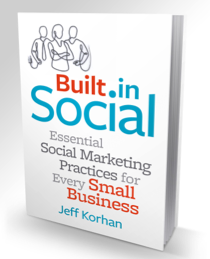
So, are you one of those motivational speakers? This is a question I’m often asked.
When you are a professional speaker you have to be prepared at every turn to explain what exactly it is you do – as well as how and why.
Sometimes I’ll admit to being a motivational speaker just to get the conversation going. Seriously, it’s a starting point that allows me to learn more about how people perceive the profession of speaking, and that makes it easier to describe it the next time around.
The Annual Convention of the National Speakers Association will be underway this weekend in Indianapolis, and I’ll be one of a thousand or so there to learn more from my peers about the multitude ways there are to succeed in this business.
Like many others speakers, this is not a profession I chose intentionally. Nevertheless, it is one that I hope to be doing until the day I kick – and certainly not because it is easy.
Many have asked me how they can learn more about becoming a speaker. I always smile at that request because I have been there too. My response is always the same – if you want to speak, speak.
It’s no different than writing and so many other endeavors. To do anything well you have to practice, and of course that means doing the work.
Of course, if you want to make it in this your profession, there is much more to it than that.
So, here goes.
Speaking Professionally is a Business
Speaking professionally is more than just mouthing words. It’s more than being animated, humorous, or showing off.
Speaking professionally is about communicating a message that changes people. Ideally, that change is sustainable, one they can act on to affect positive changes in their lives and for those that they serve.
My work as a professional speaker is to help the people I understand best, namely, mainstream or non-technical businesses. I have walked in their shoes, so I’m comfortable sharing tips about what I’ve learned about marketing, the selling process, productivity, and customer service.
It’s interesting that my focus today is digital marketing, because when I founded my first business in 1988 we did not have the Internet – no email or social media, and even cellular phones were quite uncommon. As a result, businesses were challenged with finding solutions to problems, connecting with customers, and sharing best practices with colleagues.
This may be why I’m so excited about helping mainstream businesses more effectively use digital technologies to enhance customer relationships and otherwise accelerate business growth.
So, that’s step number one for aspiring speakers. You have to affect change in a meaningful way, and you need a basis from which to establish your credibility.
Furthermore, it sure helps if you have deep convictions about it. The most successful speakers always do.
And you know why that is?
Speaking Professionally is Work
There are many truths about this business of speaking, and all of them are learned by direct experience. This is why, once again, if you want to speak, just start speaking.
In no particular order –
Here are 26 Truths About Professional Speaking.
Share your truth in a comment below and I’ll add it to the list.
- Practice is essential.
- Most speakers think they are better than they are.
- Being good is not good enough. There are lots of great speakers.
- It is an exhilarating experience when done well.
- It is exhausting experience when done well.
- It is a humbling and painful experience when poorly planned and executed.
- Things go wrong – expect the unexpected, and have a plan for adapting.
- You will surprise yourself.
- Your audience will surprise you.
- Stagefright is the least of your worries.
- You will meet some cool people.
- You get to travel to cool places.
- You are the first to arrive and last to leave.
- Your speech has to resonate with you if it is going to connect with your audience.
- You need systems.
- You will have to invest in a quality website and update it frequently.
- You need good quality video to consistently get booked.
- You need a coach (or coaches) to help with platform skills, humor, and content creation.
- You need peers to share with – a mastermind group.
- When you aren’t speaking you should be writing.
- Blogging polishes your material and attracts speaking opportunities.
- You will speak for free to stay fresh, try out new material, or honor a person or organization.
- Many speakers get paid little or nothing – and many “speakers” are not busy.
- Finding speaking engagements requires marketing and selling skills.
- You need a business model that generates revenue from sources other than speaking.
- There are very few successful speakers whose revenue is purely from speaking.
Speaking Professionally is Highly Rewarding
When all is said and done, those of us who call this our profession will do whatever it takes to succeed. Some of us feel compelled to share our message, while others simply enjoy being center stage.
For most of us, it’s probably a combination of the two.
If you truly enjoy speaking and are willing to do the necessary work, you can be a speaker.
That’s my best advice for anyone that wants to speak professionally.
Show up. Take advantage of every opportunity to speak.
Want to learn more?
Join NSA – the National Speakers Association.
In addition to many other resources, The National Speakers Association recently published two books for helping others to succeed in this profession:
Paid to Speak – Best Practices for Building a Successful Speaking Business
Speak More! – Marketing Strategies to Get More Speaking Business
I’m proud to have authored a chapter in both, and to share those pages with other accomplished speaking professionals.
How about you? Are you a speaker or one who has thought about giving this business a go?
Leave a comment below – including one of YOUR truths about the speaking business
And please share this article with your community.
Until next time, Jeff


